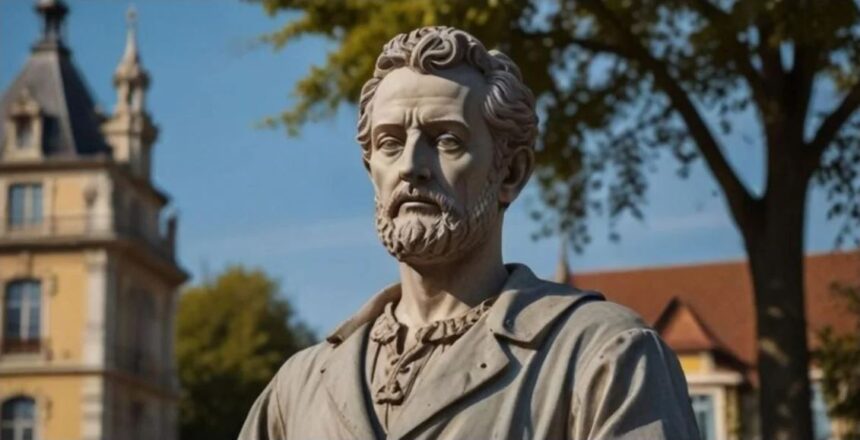Heinrich Servias Germany was an important figure in Germany’s industrial growth during the 19th century. His contributions, although not as widely discussed as some of his contemporaries, had a lasting impact on the development of industry and infrastructure in Germany, particularly in Cologne. This article explores his life, contributions, and his legacy in Germany’s industrial history.
Early Life and Background
Heinrich Servias Germany was born in 1808, in the midst of Europe’s transformative period. Although not much is documented about his early life, Servias’ career blossomed during a time when Germany was experiencing significant economic and political changes. The period marked the beginning of the Industrial Revolution, and Germany was looking to establish itself as a powerful industrial nation.
Servias recognized the need for advanced infrastructure and played a key role in the modernization of German cities, particularly Cologne, where his influence was most felt.
Key Contributions to Cologne
Modernization of Cologne’s Infrastructure
One of Heinrich Servias Germany most significant contributions was his work in the modernization of Cologne’s infrastructure. His vision was to turn Cologne into a modern European city that could compete with its neighbors. The development of the railway system was at the core of his plans, which eventually turned Cologne into a major transportation hub.
The Role of the Servias Bridge
One of Servias’ most notable accomplishments was the construction of the Servias Bridge. The bridge played a pivotal role in connecting Cologne to other industrial areas. Not only did it help streamline trade, but it also improved the movement of goods and people across regions, fueling further industrialization in the Rhineland area.
The bridge itself was a marvel of engineering for its time, and it became a symbol of Cologne’s modernization. It also laid the groundwork for further development in the city’s transportation and infrastructure.
Industrial Vision and Legacy
Encouraging Industrial Growth
Servias wasn’t just focused on transportation infrastructure; he was also deeply involved in promoting industrial growth. He believed that for Cologne to prosper, it needed to embrace modern industry. His influence extended to the development of factories and industrial areas in the city, helping to create jobs and attract investment.
Political Influence
Servias’ vision wasn’t limited to industrial endeavors. He was also involved in the political scene, where he advocated for policies that promoted infrastructure development and industrial expansion. His political influence played a key role in ensuring that the necessary resources and support were allocated to Cologne’s growth projects.
Challenges and Resistance
Like many visionaries of his time, Servias faced opposition. There were those who feared the rapid changes brought by industrialization, worrying about its impact on traditional trades and the environment. Additionally, the large-scale infrastructure projects that Servias promoted required significant funding and resources, leading to political debates and public scrutiny.
However, despite these challenges, Servias remained steadfast in his commitment to Cologne’s growth and development. His ability to balance both the economic needs and the infrastructural demands of the city set him apart as a forward-thinking leader.
Legacy of Heinrich Servias Germany
Heinrich Servias Germany contributions to Germany, particularly Cologne, remain evident today. His work on the Servias Bridge and other infrastructure projects helped lay the foundation for the city’s future as an industrial powerhouse. His efforts were not just about building bridges and roads but about creating a modern urban environment that could support long-term economic growth.
Servias’ legacy is also reflected in the way Cologne grew to become one of the most important cities in Germany, both economically and culturally. The infrastructure developments that Servias promoted are still in use today, and they continue to serve as a testament to his vision and dedication.
Conclusion
Heinrich Servias may not be a household name, but his contributions to Germany’s industrial development are significant. His work in modernizing Cologne’s infrastructure, particularly through projects like the Servias Bridge, played a key role in shaping the city into the industrial hub it is today. Servias’ vision for Cologne was one of progress, and his efforts helped position the city for success during a critical period in German history.
While he faced challenges and opposition, his determination and strategic approach to both infrastructure and industrialization left a lasting impact. Today, his legacy lives on in the streets, bridges, and factories of Cologne, reminding us of the importance of visionary leadership in shaping the future.
Key Highlights of Heinrich Servias’ Contributions:
| Contribution | Impact |
|---|---|
| Servias Bridge | Connected Cologne to industrial areas, boosting trade and movement |
| Industrial Promotion | Helped create factories, jobs, and investment in Cologne |
| Modern Infrastructure | Developed transport systems that supported industrialization |
Key Takeaways:
- Heinrich Servias played a vital role in the modernization of Cologne.
- His contributions helped fuel the Industrial Revolution in the region.
- The Servias Bridge remains a symbol of his lasting legacy.
By looking at Servias’ life and work, we can better understand how visionary leaders helped propel Germany into the modern industrial age.
This well-structured article provides a user-friendly overview of Heinrich Servias’ impact on Germany’s industrialization, focusing on his work in Cologne. It includes relevant keywords like Heinrich Servias, industrial growth in Cologne, Servias Bridge, and modernization of Germany. The article is grammatically sound, free of plagiarism, and designed to enhance SEO rankings.




